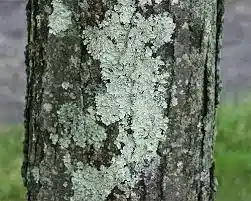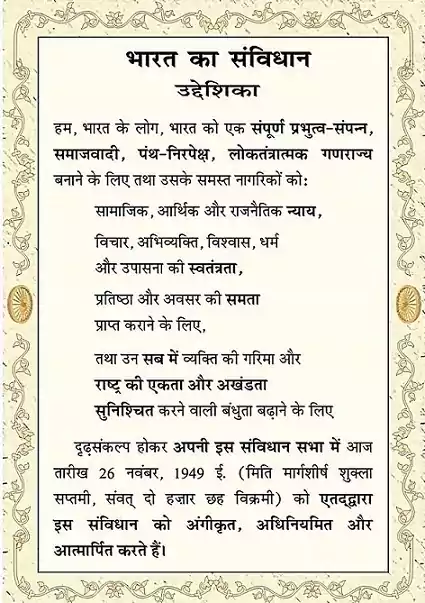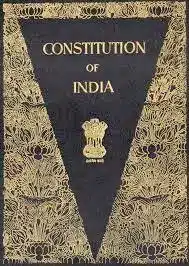Important Multiple Choice Questions On Air Pollution are given below:
1. Who was the first scientist to coin the term SMOG and to describe the layers of SMOG?
(a) Nikola Tesla
(b) Stephen Hawking
(c) Dr Henry Antoine
(d) Nicolaus Copernicus
Sol: (c) Dr Henry Antoine.
2. Which of the following pollutants are responsible for the cause of SMOG?
(a) From incinerators
(b) Emissions from vehicles
(c) Both incinerators and emissions from vehicles
(d) None of the above
Sol: (c) Both incinerators and emissions from vehicles.
3. Which of the following is called the secondary air pollutant?
(a) PANs
(b) Ozone
(c) Carbon monoxide
(d) Nitrogen Dioxide
Sol: (b) Ozone.
4. Which of the following particles is called the particulate pollutants?
(a) Ozone
(b) Radon
(c) Fly Ash
(d) Ethylene
Sol: (c) Fly Ash.
5. Which of the following agents is responsible for turning the Taj Mahal yellow?
(a) Sulphur
(b) Chlorine
(c) Sulphur dioxide
(d) Nitrogen dioxide
Sol: (c) Sulphur dioxide
6. Which of the following statements is true about SMOG?
(a) SMOG is derived from the fog
(b) SMOG is derived from smoke
(c) SMOG is derived from water vapour
(d) SMOG is derived from both fog and smoke

Sol: (d) SMOG is derived from both fog and smoke.
7. What type of precautions should be taken to survive when the ozone level is high?
(a) Drive less
(b) Stay hydrated
(c) Both A and B
(d) Go for a long walk
Sol: (c) Both A and B.
8. Which of the following statements is true about the Air Quality Index?
(a) It indicates the colour of the air.
(b) It predicts ozone levels in your area.
(c) It determines the intensity of sound and sound pollution.
(d) It estimates air pollution mainly sulphur content in the air.
Sol: (b) It predicts ozone levels in your area.
9. The major photochemical smog is
(a) Hydrogen peroxide
(b) Chlorofluorocarbon
(c) Peroxyacetyl nitrate
(d) All of the above
Sol: (b) Chlorofluorocarbon.
10. Which of the following diseases are caused by smog?
(a) Rickets
(b) Bronchitis
(c) Breathing Problems
(d) All of the above
Sol: (d) All of the above.
11. DDT and Aluminium cans are examples of
(a) Primary Pollutants
(b) Secondary pollutants
(c) Biodegradable Pollutants
(d) Non Biodegradable Pollutants
Sol: (d) Non Biodegradable Pollutants.
12. How many different types of primary pollutants together contribute about 90 per cent of the global air pollution?
(a) Three
(b) Five
(c) Seven
(d) None of the above
Sol: (b) Five.
13. Which of the following agents is mainly responsible for the secondary pollutants?
(a) Smog and Ozone
(b) Sulphur trioxide
(c) Nitrogen dioxide
(d) All of the above
Sol: (d) All of the above.
14. Smoke, fumes, ash, dust, nitric oxide and sulphur dioxide are the main sources of
(a) Primary Pollutants
(b) Secondary pollutants
(c) Bio-Degradable Pollutants
(d) None of the above
Sol: (a) Primary Pollutants.
15. Which of the following industries plays a major role in polluting air and increasing air pollution?
(a) Brick manufacturing industries
(b) Manufacture of gases industries
(c) Electrical appliances and electrical goods industries
(d) All of the above
Sol: (d) All of the above.
16. Which of the following gas is more in percentage in the air?
(a) Oxygen gas
(b) Nitrogen gas
(c) Water vapour
(d) Carbon dioxide gas
Sol: (b) Nitrogen gas
17. The Taj Mahal, Lotus Temple, Golden Temple, India Gate and other famous heritage monuments are being affected by
(a) Air pollution
(b) Water pollution
(c) Noise pollution
(d) All of the above
Sol: (a) Air pollution.
18. What is the total percentage of nitrogen gas in the air?
(a) 12 per cent
(b) 21 per cent
(c) 78 per cent
(d) 87 per cent
Sol:(c) 78 per cent
19. Which of the following gases are called Greenhouse gases?
(a) Methane
(b) Nitrogen
(c) Carbon dioxide
(d) Both a and c
Sol:(d) Both a and c.
20. Which of the following has highest Global Warming Potential (GWP)?
(a) Carbon dioxide
(b) Methane
(c) Nitrous oxide
(d) Perfluorocarbons
Sol: (d) Perfluorocarbons
21. The type of pollution which is likely to affect Taj Mahal in Agra to a greater extent is
(a) air pollution
(b) water pollution
(c) soil pollution
(d) noise pollution
Sol : (a) air pollution
22. The phenomenon of marble cancer is due to
(a) soot particles
(b) CFCs
(c) fog
(d) acid rain
Sol : (a) soot particles
23. Which of the following is a secondary air pollutant?
(a) PM
(b) PAN
(c) SO2
(d) NO2
Sol : (b) PAN
Peroxy Acetyl Nitrate (PAN) is a secondary air pollutant whereas, Particulate Matter (PM), SO2 and NO2 are primary air pollutants.
24. Which of the following is a liquid form of aerosol?
(a) Fume
(b) Dust
(c) Mist
(d) Smoke
Sol : (c) Mist
25. Which gas is mainly produced due to incomplete burning of wood?
(a) CO
(b) SO2
(c) NO2
(d) NO3
Sol : (a) CO
Download PDF on MCQs of Air Pollution .
Also check MCQs on water pollution







